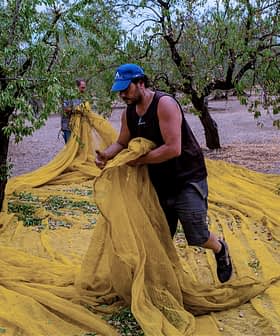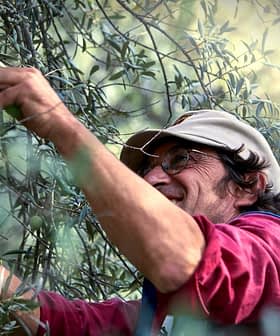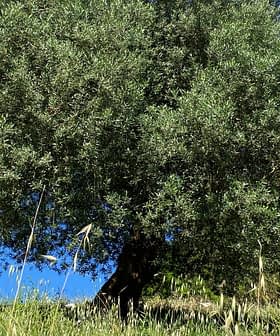The Italian olive oil sector has lost €2 billion ($2.25 billion) during the months of the Covid-19 lockdown, according to the Italian farmers’ association, Coldiretti.
The group recently published its figures detailing the economic fallout from the pandemic, which has hit tens of thousands of small and large olive oil producers across the country.
We need a relevant public commitment to restart exports, with an extraordinary communication plan about olive oil.
Most of the economic damage is due to the coronavirus containment measures, including the shutdown of the food services. However, the sector was also devastated by the falling olive oil prices and by the collapse of tourism — a significant sales channel for medium and small producers in the country.
Coldiretti also warned that these losses are likely to continue as olive oil prices stay low and restaurants, farmhouses and most other tourist venues struggle to return to normal operations, due to the reduced flow of visitors.
See Also:Covid-19 UpdatesIn a note, Coldiretti warned of the magnitude of the economic contraction for “a sector in Italy that includes more than 400,000 dedicated farms, which operate with 533 olive varieties and 250 million olive trees to produce the highest number of Protected Designation of Origin and Protected Geographical Indication extra virgin olive oils in Europe.”
Given the numbers involved, Coldiretti stressed, the consequences could spread beyond the immediate boundaries of the sector. The association argued that employment figures in related businesses and long-term impacts on the environment were also a risk.
In Calabria alone, which is the second largest olive oil producing region in the country, losses for the sector and for businesses related to olive oil production and distribution reached €400 million ($452 million).
With 470,000 acres of olive orchards, Calabria accounts for more than 30 percent of Italy’s olive oil yield. Olive oil production also accounts for about 36 percent of the region’s total agricultural output.
“Prices paid to producers have fallen 44 percent, numbers that have not been recorded since 2014,” Coldiretti said. “A phenomenon due to the presence on the world market of abundant stocks of old Spanish olive oil.”
Coldiretti argued that prices in Italy were falling as a result of Spanish olive oil imports flooding the Italian market. The association added that much of the oil would be labeled as Italian olive oil with no clear indication of its true origin.
To counter the effects of this current crisis, Coldiretti has proposed a “save the olives project” to national and local authorities as well to those involved in olive oil production and sales.
The project involves a series of measures, such as a simplified access to the already allocated funds for the modernization of the olive oil sector or a “flexible bureaucracy to certify the quality of products, including PDO and PGI, organic and SQNPI quality.”
The SQNPI is a certification scheme meant to add value to agricultural products by demonstrating on their label that those products have been produced in compliance with local regulations.
Other proposed measures include the purchase of extra virgin olive oil for the families in need and the mandatory use of Italian olive oils in public cafeterias.
Coldiretti also asked for new funds for olive oil producers to compensate them for the drop in sales and specific funds for the PDO and PGI-certified olive oil stocks that went unsold.
Coldiretti has also asked local and national authorities to work together in order to better coordinate olive oil exports.
“We need a relevant public commitment to restart exports, with an extraordinary communication plan about olive oil,” Ettore Prandini, the association’s president, said. “This is even more needed now that Italian olive oil exports could soon be hit by the new tariffs being considered by United States President Donald Trump as a result of the continuing dispute with the European Union about the aeronautical sector.”
The Italian Association of the Olive Oil Industry (Assitol) has previously warned that these tariffs could cost the sector $200 million per year.









